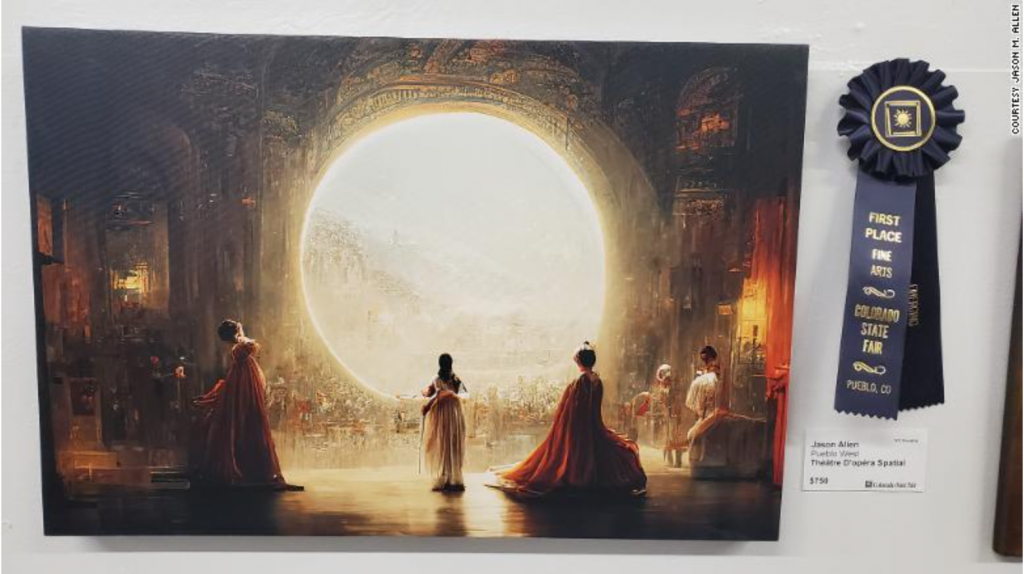
The winning entry, “Théâtre D’opéra Spatial” or “Space Opera Theater” in English, generated criticism from the public and other artists. (Source: Jason M. Allen)
Art Competition Winner Relied on Midjourney Program to Generate Winning Entry
The first-place winner of a Colorado State Fair Fine Arts Competition had never entered an art contest before—but he entered in the digital art category, using an AI app called Midjourney to help him design his entry, according to a story on cnn.com. The man who entered the contest, Jason M. Allen, works as a game designer and lives in Pueblo West, Colo. He’s the founder and lead developer at the board game company Incarnate Games, according to a story on creativebloq.com.
After his win, however, other contestants were not pleased to discover that an AI program had created the art. Allen entered descriptive terms for the image, but the AI program did the composition and design. Allen won $300 for his entry, which was called, “Théâtre D’opéra Spatial” (French for “Space Opera Theater”).
“I’m fascinated by this imagery. I love it. And I think everyone should see it,” Allen, 39, told CNN Business in an interview on Friday.
Technically, Allen’s entry goes by the rules because the definition for the category he competed in states that digital art refers to works that use “digital technology as part of the creative or presentation process.” But some who saw his post on social media are crying foul.
“This is the literal definition of ‘pressed a few buttons to make a digital art piece’,” a person Tweeted. “AI artwork is the ‘banana taped to the wall’ of the digital world now.” Another posted, “This sucks for the exact same reason we don’t let robots participate in the Olympics.”
Allen defended his art by saying that he created 900 iterations of what led to his final three images. He cleaned up those three images in Photoshop, such as by giving one of the female figures in his winning image a head with wavy, dark hair after Midjourney had created a headless image. Then he ran the images through another software program called Gigapixel AI that can improve resolution and had the images printed on canvas at a local print shop.
Other comments point to art AI’s plagiarism issue, according to a story on hyperallergic.com, which also published the second and third place winners.
“My problem with this is not that they ‘used AI’, but that using AI means that everything here was very literally stolen off a bunch of artists’ work in a way that not even a homage or study does,” reads another popular comment by @tinytelephones.
read more at cnn.com







Leave A Comment